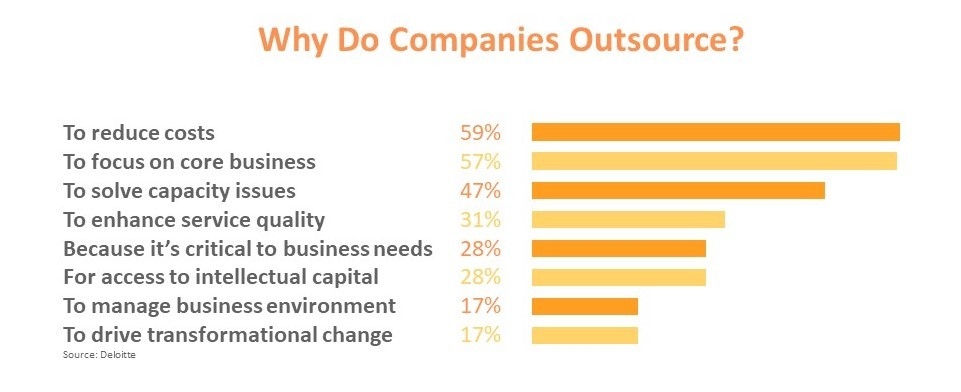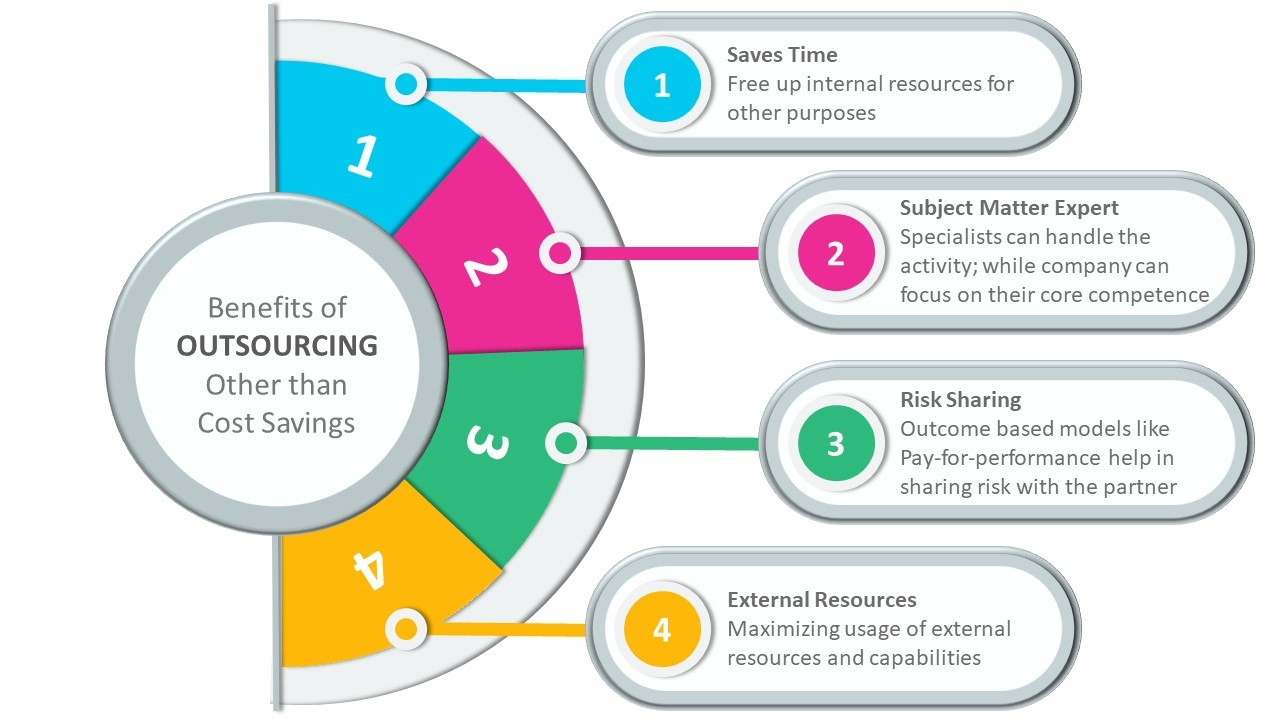As the outsourcing industry expanded and branched out to a diverse set of functions, 74% of companies now outsource IT, 52% outsource HR, 43% outsource procurement, and 39% outsource finance.
I joined the outsourcing industry in 2007 and, at the time, I too, like most of us, believed that companies outsourced strictly for monetary reasons. But after more than a decade in the industry and watching the evolution of outsourcing, I can safely say that there are reasons beyond saving money that companies benefit from in an outsourcing partnership.
Keep in mind, I am not denying the fact that outsourcing can save companies a significant amount of money and free up cash flow to focus on their key initiatives. According to Intetics.com, it is still the primary reason companies outsource. And with the geographic expansion of the industry, domestic headcount can be moved to off-shore locations like the Philippines and India to save furthermore costs and deliver quality on par with domestic services.

However, focusing strictly on cost savings means getting onto a path of destruction from the start an outsourcing engagement. Gartner stated that about half of outsourcing projects are doomed to fail. And this is mainly because the organizations only focus on cost savings; rather than paying adequate attention to the details such as synergy between organizations, vendor’s industry and technical expertise, vendor’s flexibility, weaknesses of the outlined outsourcing model, organizations’ cultural differences, etc.
As David Berry, CIO of Daymon said, outsourcing is no longer about saving money, but primarily about flexibility and getting to scale. Often, outsourcing gives companies the flexibility to scale up or down based on seasonality that wouldn’t normally be achieved in a captive environment. Companies can struggle with brand image in the market when hiring seasonal or temporary workers. And do you really want the headache of adding hundreds or even thousands of employees during the holiday shopping season, tax season, or at the launch of the hottest new product in the market? Outsourcing provides access to a broad network of clients, so scaling up often doesn’t require subsequent scaling down. Outsourcing companies are able to move employees to other accounts, rather than having to deal with massive layoffs and the repercussions associated with it.
More and more companies are now also taking advantage of outsourcing as a means of gaining subject matter expertise in areas outside of their core competencies. Should a software company really have the be the experts in running a contact center, finance and accounting department, or managing human resources when there are outsourcing companies who specialize in those processes? The answer is definitely no. Outsourcing companies have employees with decades of experience focused on CSAT improvement, driving AHT reduction, improving sales execution, delivering NPS, hiring the right talent, reducing order management costs, etc.
Not to mention, Outsourcing gives companies the opportunity to establish a partnership with other companies who are willing to put ‘skin in the game’ with outcome-based models – those that are based on pay-for-performance or risk & reward. An example of this may be a sliding payment scale based on sales performance versus targets, a per transaction or per resolved contact payment model, or revenue share engagements where both companies share in the sales of products in the channel. I often tell my friends, business partners, and clients – especially those who are outsourcing for the first time – that our most successful engagements are those that have a mutual investment. That investment may include over hiring of talent, sharing subject matter experts, investments to travel to help launch a new engagement or the overhaul of training content. Focusing only on cost savings shifts focus to the wrong areas of cutting costs which can translate into poor quality and results.
There are several benefits of outsourcing other than cost savings, as shown below, which establish a successful partnership

The most successful outsourcing engagements become an extension of your organization and are a true partnership. Starting and scaling up a new outsourcing engagement can be hard – it takes an incredible amount of investment and focus on delivering more than cost savings. The investment and focus can ultimately translate to incredible results and transformation for your business.
Ruth Rose





